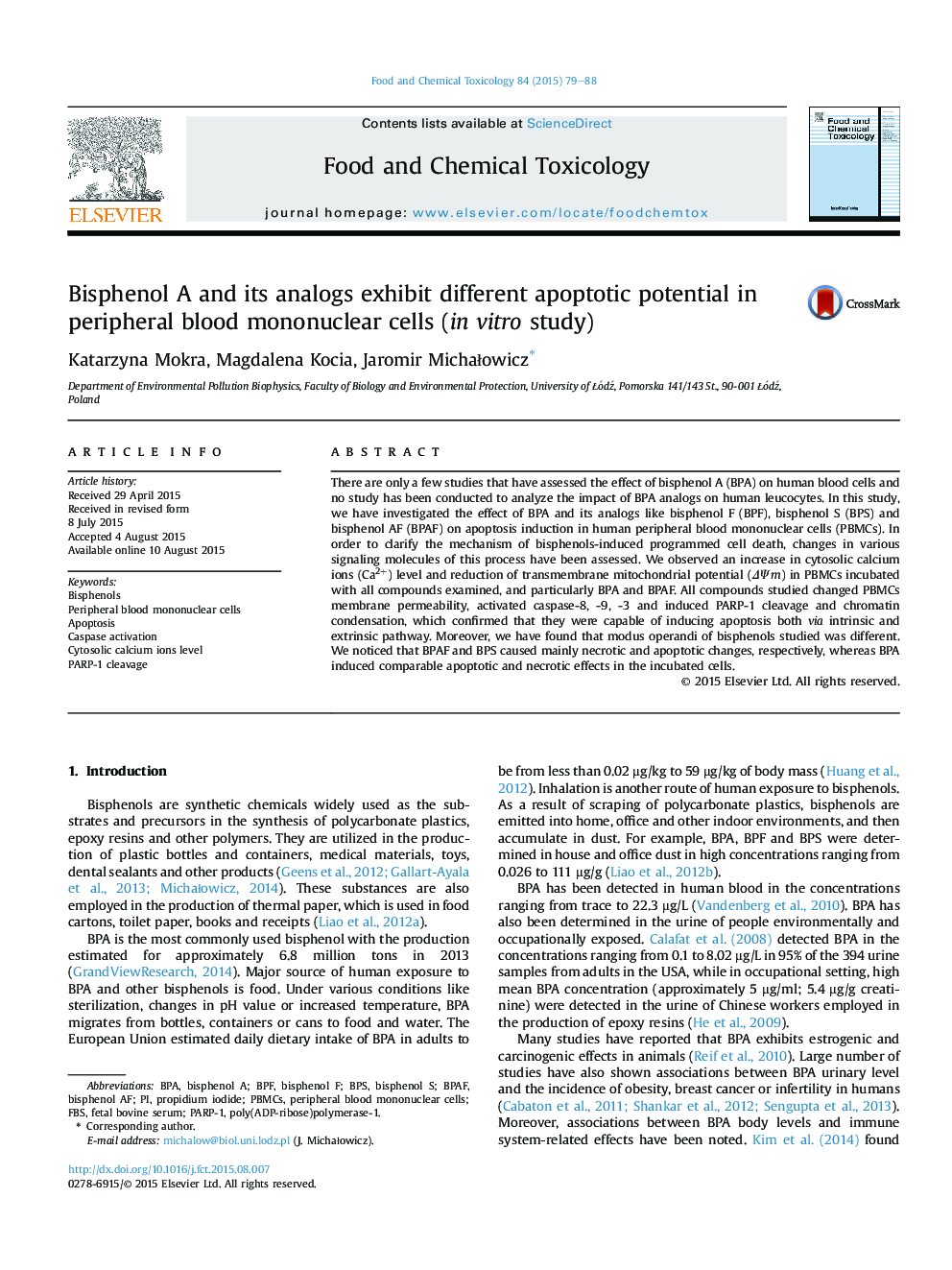| Article ID | Journal | Published Year | Pages | File Type |
|---|---|---|---|---|
| 5849510 | Food and Chemical Toxicology | 2015 | 10 Pages |
Abstract
There are only a few studies that have assessed the effect of bisphenol A (BPA) on human blood cells and no study has been conducted to analyze the impact of BPA analogs on human leucocytes. In this study, we have investigated the effect of BPA and its analogs like bisphenol F (BPF), bisphenol S (BPS) and bisphenol AF (BPAF) on apoptosis induction in human peripheral blood mononuclear cells (PBMCs). In order to clarify the mechanism of bisphenols-induced programmed cell death, changes in various signaling molecules of this process have been assessed. We observed an increase in cytosolic calcium ions (Ca2+) level and reduction of transmembrane mitochondrial potential (ÎΨm) in PBMCs incubated with all compounds examined, and particularly BPA and BPAF. All compounds studied changed PBMCs membrane permeability, activated caspase-8, -9, -3 and induced PARP-1 cleavage and chromatin condensation, which confirmed that they were capable of inducing apoptosis both via intrinsic and extrinsic pathway. Moreover, we have found that modus operandi of bisphenols studied was different. We noticed that BPAF and BPS caused mainly necrotic and apoptotic changes, respectively, whereas BPA induced comparable apoptotic and necrotic effects in the incubated cells.
Keywords
Related Topics
Life Sciences
Agricultural and Biological Sciences
Food Science
Authors
Katarzyna Mokra, Magdalena Kocia, Jaromir MichaÅowicz,
